Climate action at a crossroads: Expert panels weigh in ahead of 2024 election
Highlights from IBES’ October panel discussions, a two-part series exploring the intersection of climate and politics in the U.S. presidential election.
Climate Action and the 2024 Election: Science, Policy and Disinformation
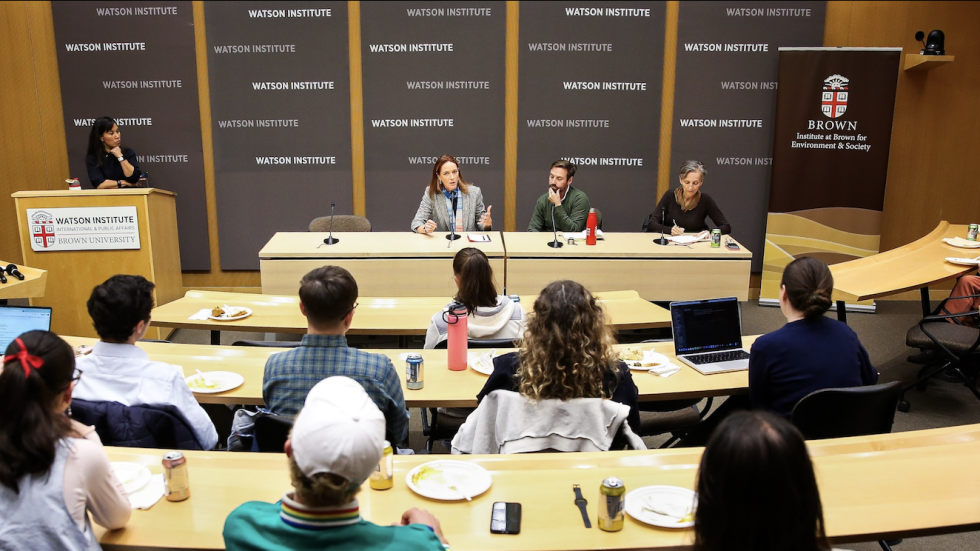 Play
Play
From left to right: Moderator Carrie Nordlund, Pre-College and Undergraduate Programs, Watson MPA faculty; Kim Cobb, Institute at Brown for Environment and Society; Stefanie Friedhoff, Information Futures Lab, School of Public Health; Chris Rea, Climate Solutions Lab, Watson Institute for International and Public Affairs.
On October 8, Brown faculty from IBES, the Watson Institute, and the School of Public Health discussed the 2024 election’s impact on climate action, focusing on environmental information and the politics of climate action. IBES director and climate scientist Kim Cobb, journalist Stefanie Friedhoff, and sociologist Chris Rea engaged in thoughtful discourse concerning the agendas of the United States’ two major political parties and specific climate policies at stake in the 2024 Presidential election.
Friedhoff stressed that the dialogue around climate change must be framed in terms of how it impacts everyday life–that merely insisting on “the facts” does not translate to the general public.
“ Not everybody needs to understand on a physics-level how climate change works in order to understand that these storms are getting stronger, and I can see that my community is now flooded… Science needs to be culturally authorized. Insisting that science just knows and we need to act on it is the wrong way to make policy. ”
Passed under the Biden Administration, the preliminary data from Inflation Reduction Act investments have been “overwhelmingly positive,” Cobb said.
She also urged the audience to be patient with new policies: “Much like climate change is a multi-decade ramp and only now we are seeing some of those consequences, it is equally important to remember that the investments made in the Inflation Reduction Act are 10-year investments that have only just begun.”
Climate Action and the 2024 Election: Brown Alumni Innovating at Local, State and Federal Levels
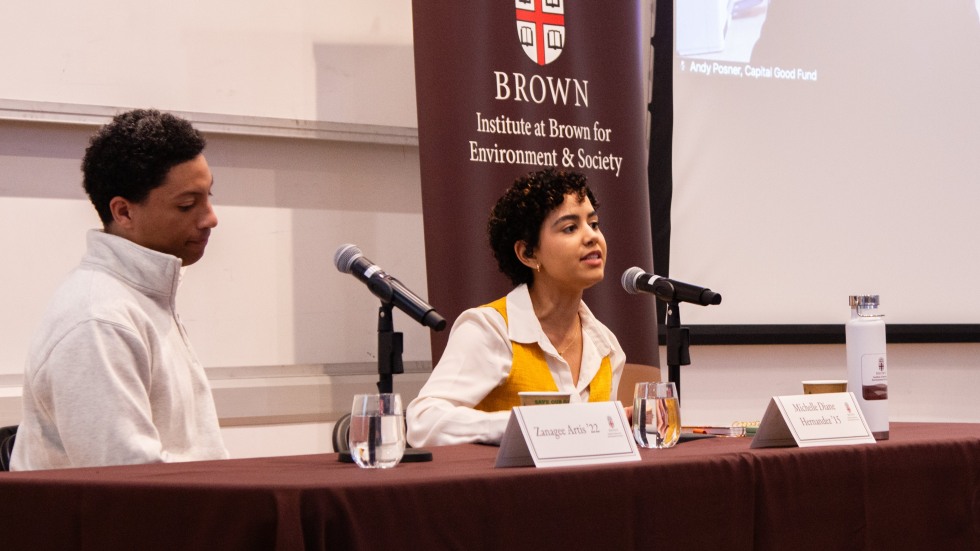 Play
Play
Zanagee Artis ’22 of the Natural Resources Defense Council and Michelle Diane Hernandez ’15 of Climate Power; Andrew Posner ’09 AM of Capital Good Fund and Ari Matusiak ’99 of Rewiring America spoke virtually. The discussion was moderated by Megan Hall ’04 ’15 MPH, host of the Possibly Podcast.
On October 26, just 10 days before the 2024 Presidential election, four Brown alumni explored the role of climate action and climate innovation at the local, state and federal levels.
IBES Director Kim Cobb opened the event by addressing the personal stakes of climate change, especially in the wake of hurricanes Milton and Helene. Hernandez pointed out the economics behind environmental disasters, highlighting the tens of billions of dollars in damage caused by the hurricanes. Not only are homes being destroyed, she noted — the home insurance industry must also adapt to increasing costs and risks.
“ Climate action saves money. ”
In addition to the presidential election, the panelists also emphasized the importance of local and state elections in climate action. Matusiak in particular underscored the importance of everyday life choices in turning the tide of climate change.
“ The decisions we make around our kitchen tables are incredibly important not only in generating that climate momentum, but also generating political momentum. ”
One audience member asked, “If you could make one wish regarding climate change, what would it be?” Artis wished for an end to offshore drilling leases and eventually an end to all drilling leases. Hernandez drew attention to the agriculture industry, wishing to move away from mono crop and big farming agricultural practices. Posner wished for policies that don’t just “build good stuff” but also “stops building the bad stuff.” Matusiak pointed out the discrepancy between the cost to install a solar rooftop in the United States versus Australia, and wished for the United States’ solar prices to plummet so as to promote a full electrical future.
The panelists concluded by urging their audience to action:
- “Check in on your loved ones. Urge them to vote.” – Zanagee Artis ’22
- “If there’s something you take away from this, voting is not enough. Voting is just the baseline. You have to engage, you have to follow up with your elected officials.” – Michelle Diane Hernandez ’15
- “Do what you can do: write letters, canvas, knock on doors, make phone calls. But don’t let despair rule the day, and don’t lose hope.” – Andrew Posner ’09 AM
- “Democracy favors engagement, and it is required now more than ever.” – Ari Matusiak ’99
The panel was part of IBES's 2024 Open House, which featured greenhouse tours and the opportunity to learn more about IBES and meet members of the community.
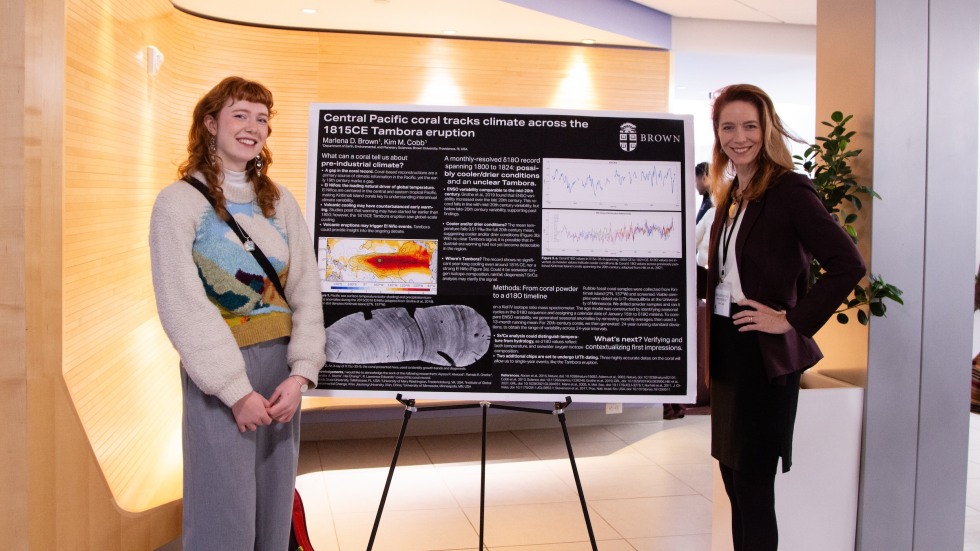
Undergraduate students including Marlena Brown '25 discussed their research and involvement with IBES during the Open House.
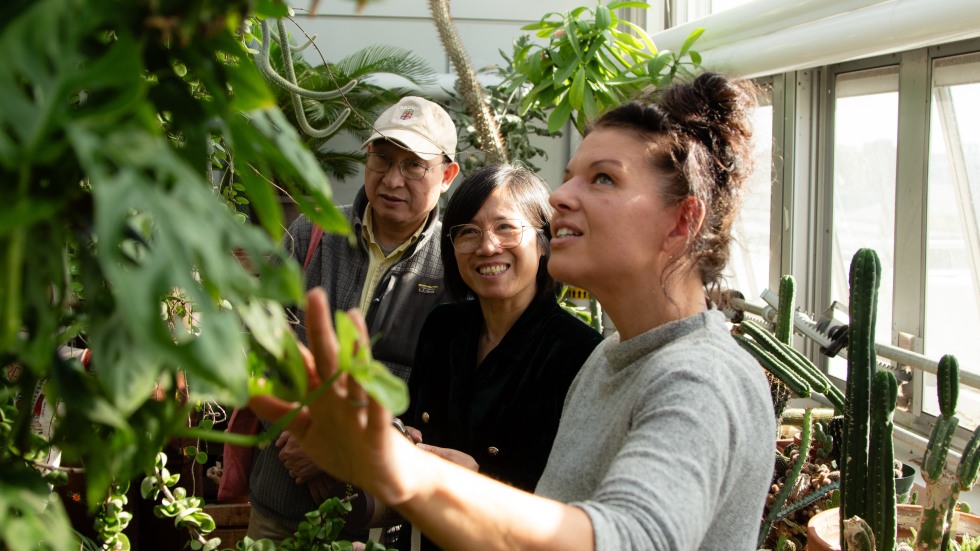
Families toured the Plant Environmental Center, located on the fourth floor of 85 Waterman St.
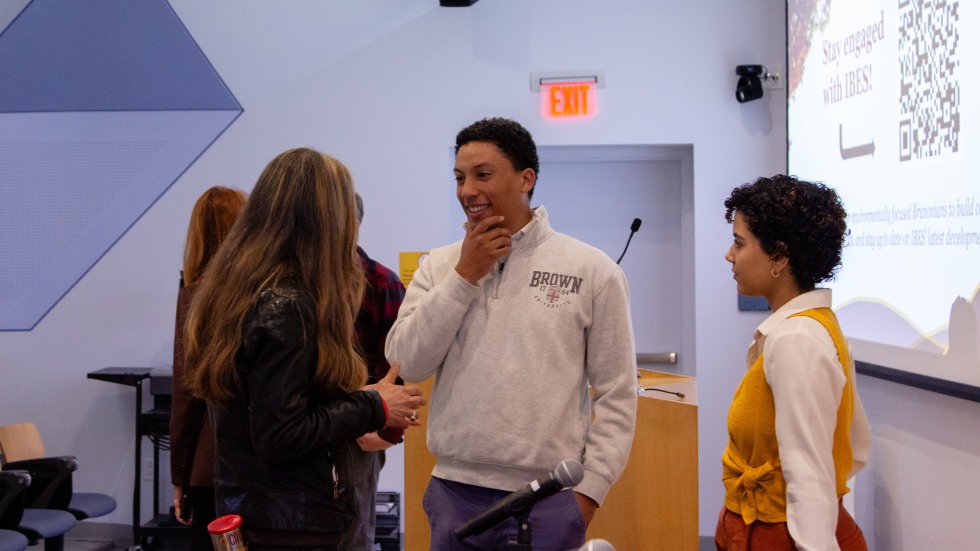
Following their formal discussion, panelists Zanagee Artis and Michelle Diane Hernandez continued to answer audience questions one-on-one.
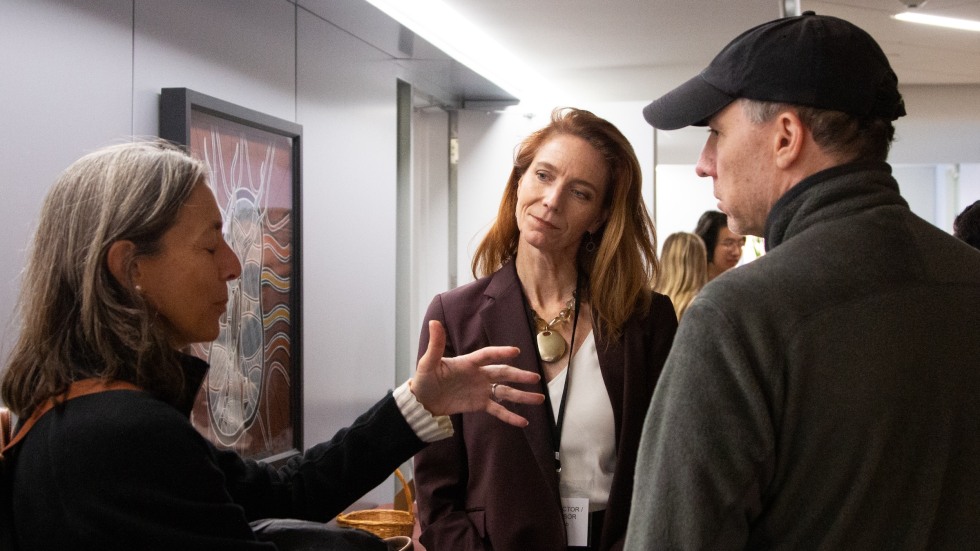
Families had the opportunity to connect with IBES faculty, including Director Kim Cobb.